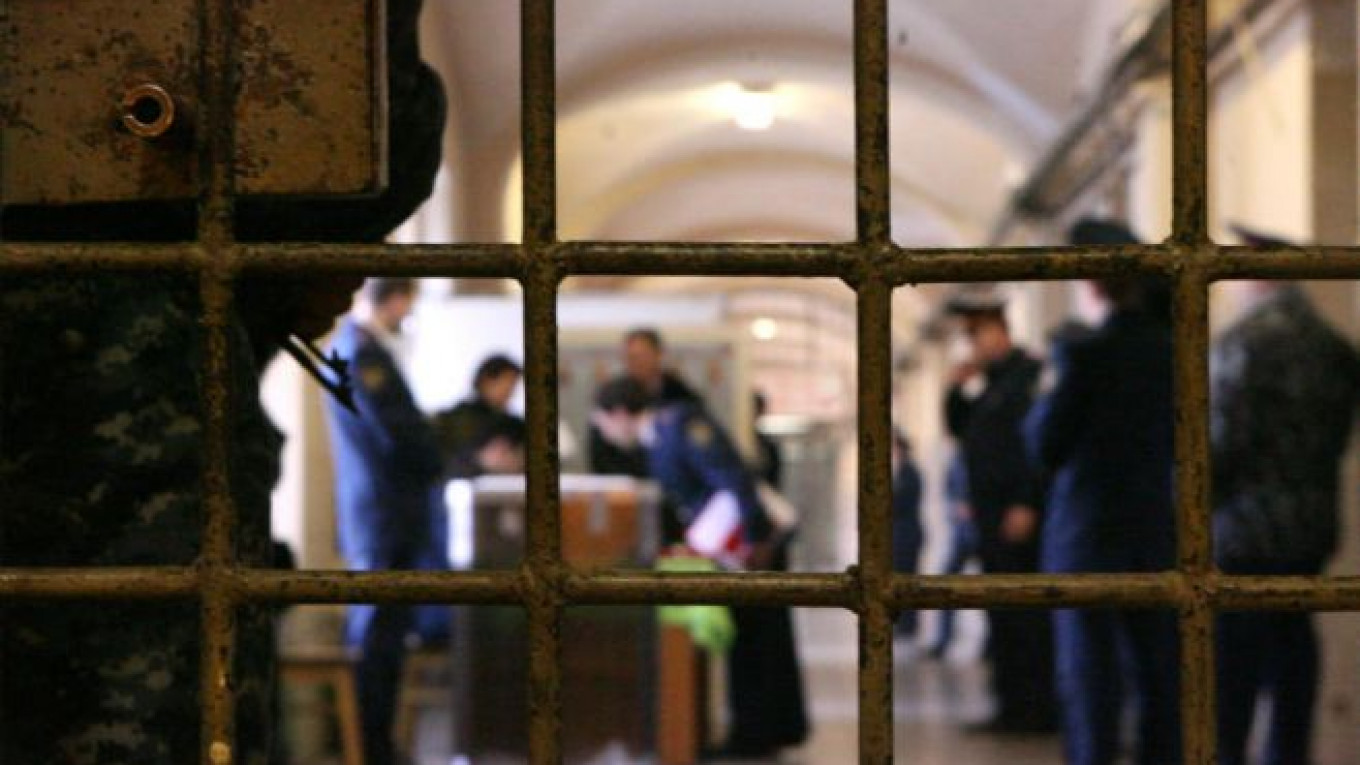As the State Duma closed out its spring session on Friday, lawmakers lauded as among the most important laws passed this year the sweeping amnesty Russia adopted to celebrate the 70th anniversary of the Allied victory against Nazi Germany.
"Our party generally favors the humanization of the penitentiary system," said Deputy Mikhail Degtyaryov, a member of the Liberal Democratic Party, state news site Parlamentskaya Gazeta reported.
LDPR leader Vladimir Zhirinovsky likewise listed the law as one of the Duma's greatest springtime accomplishments, according to Parlamentskaya Gazeta.
Media outlets echoed the sentiment that the law was among the season's highlights.
But more than two months since Russia adopted the amnesty, many thousands of prisoners continue to languish in jail, their prospects for release mired in bureaucracy, Gazeta.ru reported last week. In many cases, the terms of prisoners to whom the amnesty applies are likely to expire before the law succeeds in freeing them, according to the report.
The amnesty, which kicked off on April 24, was expected to free up to 400,000 convicts. Since then, only 112,000 have walked free, Gazeta.ru reported.
The amnesty applied to elderly and disabled convicts, pregnant women and young mothers, war veterans, Chernobyl rescue workers, first-time offenders who had committed low- to mid-level crimes, those who had been convicted for unintentional or accidental crimes and those whose terms were set to expire in less than a year.
It did not apply to those involved in drug-related crimes, corruption-related crimes, murders or acts of large-scale fraud.
As the RBC news agency reported in April, State Duma deputies also declined an amendment proposed by A Just Russia party member Dmitry Gudkov, suggesting that those convicted of participating in mass riots should be included in the amnesty.
According to Gazeta.ru, many inmates had hoped to be free by the end of summer, claiming it was the easiest time of year to travel home and to start new lives for themselves.
In Krasnodar region, the amnesty reportedly applied to 8,319 people. By the end of June 3,736 of them were free. But of these, only 603 had been incarcerated — the rest had been serving suspended sentences, Gazeta.ru reported.
According to local experts, reasons for the delay in releasing prisoners are purely bureaucratic. "We were told that the Prosecutor's Office simply сan't do the necessary paperwork in time," Vladimir Potapov, member of a regional branch of the Public Supervisory Commission, was cited by Gazeta.ru as saying last week.
Representatives of the Prosecutor's Office in the Krasnodar region assured that there would be no delays in releasing prisoners. "Right now we are doing our best to release those who have shorter terms so they can walk free because of the amnesty and not because their term have expired," Andrei Lopatin, spokesman, was cited by Gazeta.ru as saying last week.
"At the same time we work very thoroughly with all the documents, which sometimes require us to request additional materials from other institutions. [That is why it takes more time]," he said.
Contact the author at d.litvinova@imedia.ru
A Message from The Moscow Times:
Dear readers,
We are facing unprecedented challenges. Russia's Prosecutor General's Office has designated The Moscow Times as an "undesirable" organization, criminalizing our work and putting our staff at risk of prosecution. This follows our earlier unjust labeling as a "foreign agent."
These actions are direct attempts to silence independent journalism in Russia. The authorities claim our work "discredits the decisions of the Russian leadership." We see things differently: we strive to provide accurate, unbiased reporting on Russia.
We, the journalists of The Moscow Times, refuse to be silenced. But to continue our work, we need your help.
Your support, no matter how small, makes a world of difference. If you can, please support us monthly starting from just $2. It's quick to set up, and every contribution makes a significant impact.
By supporting The Moscow Times, you're defending open, independent journalism in the face of repression. Thank you for standing with us.
Remind me later.






